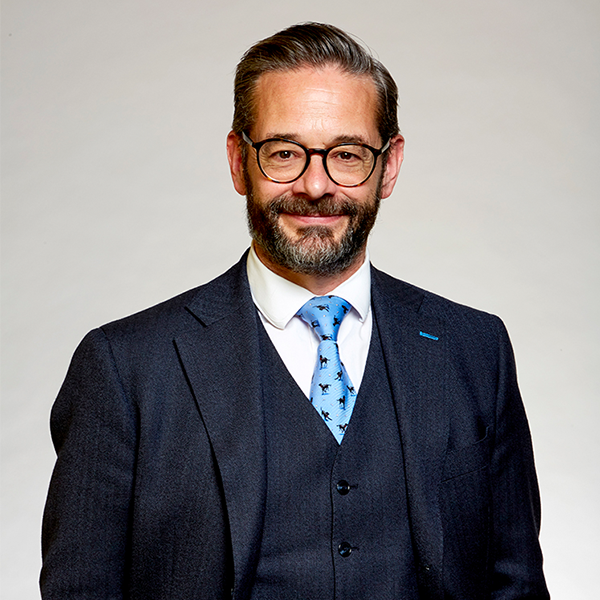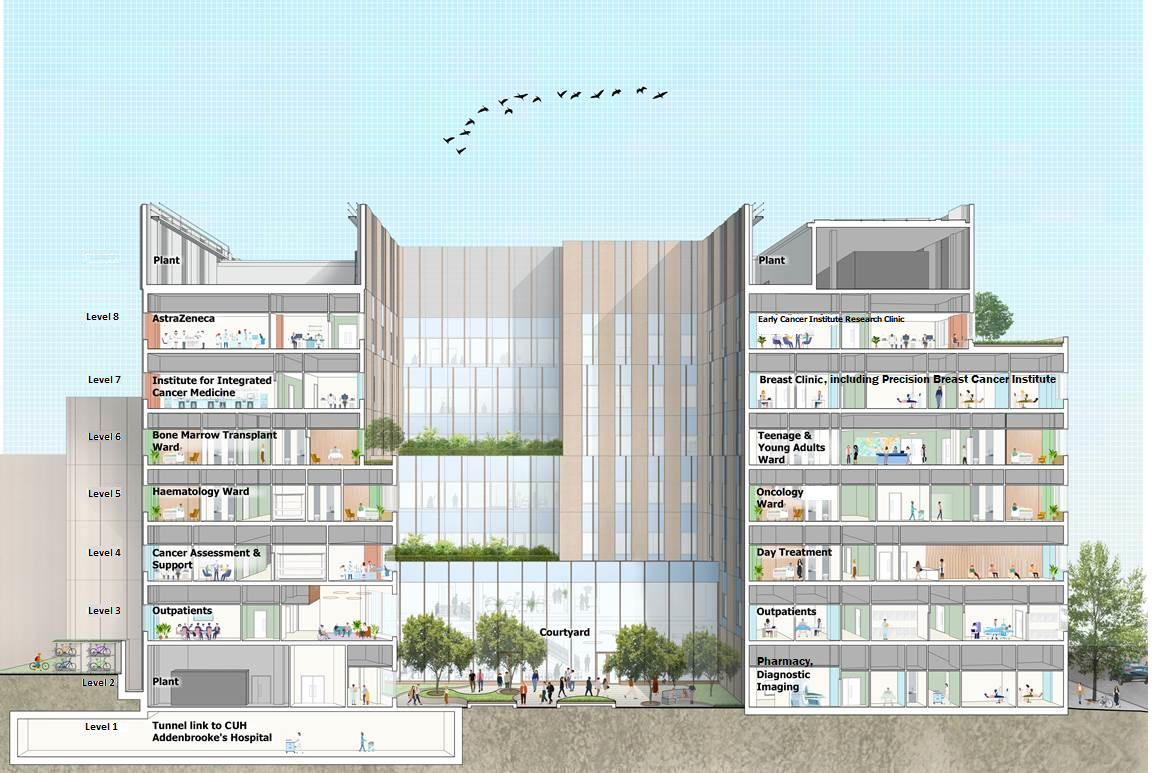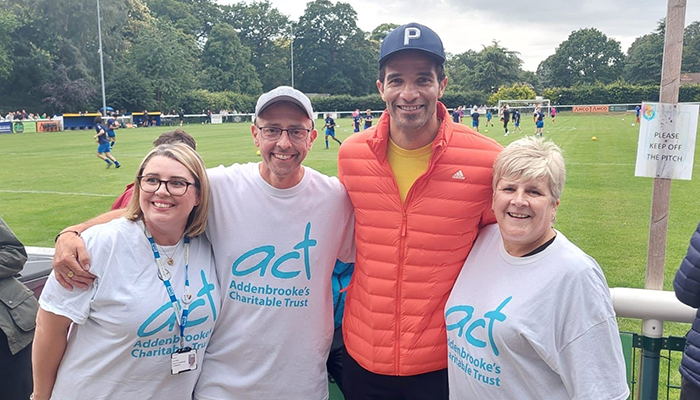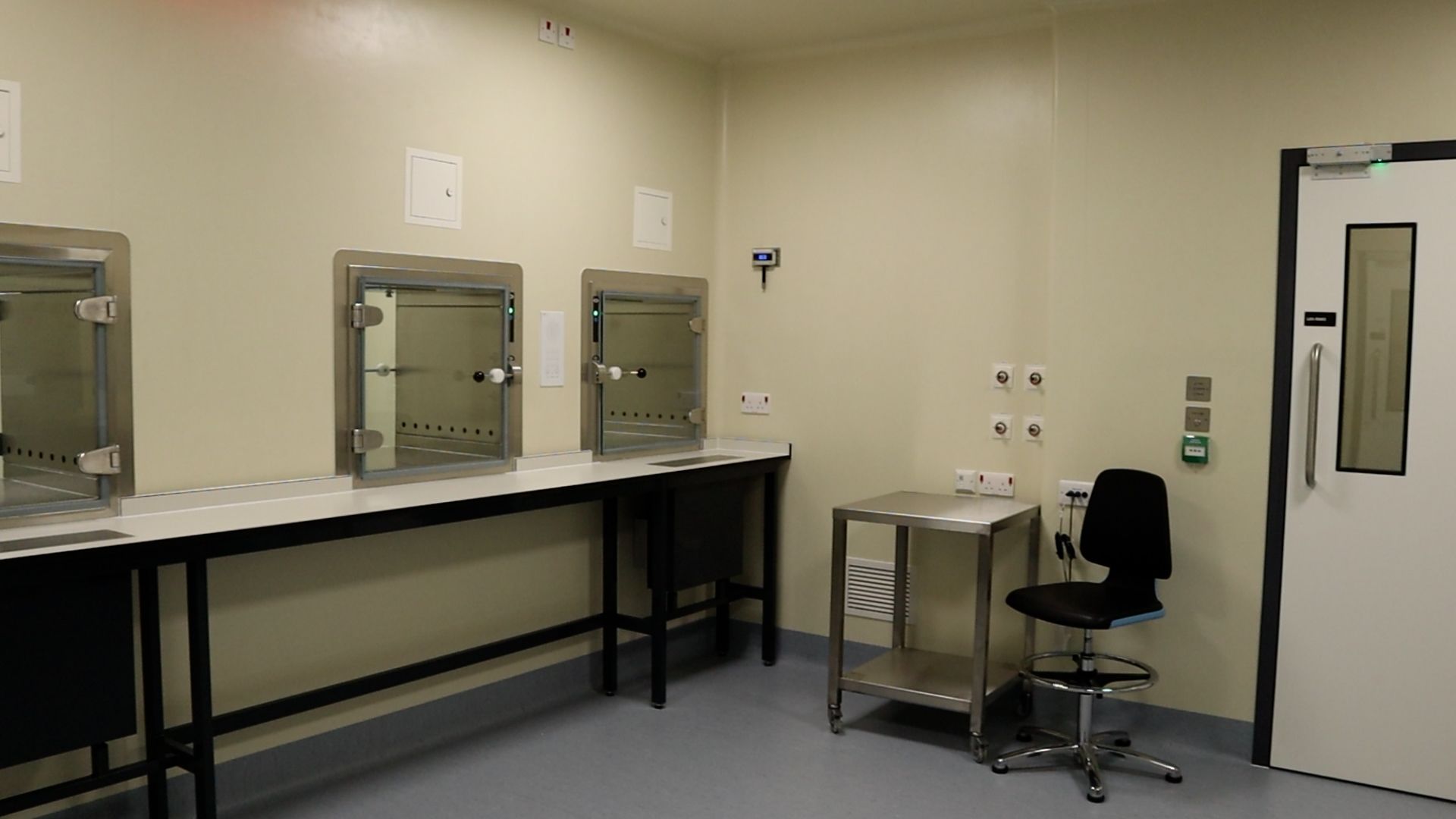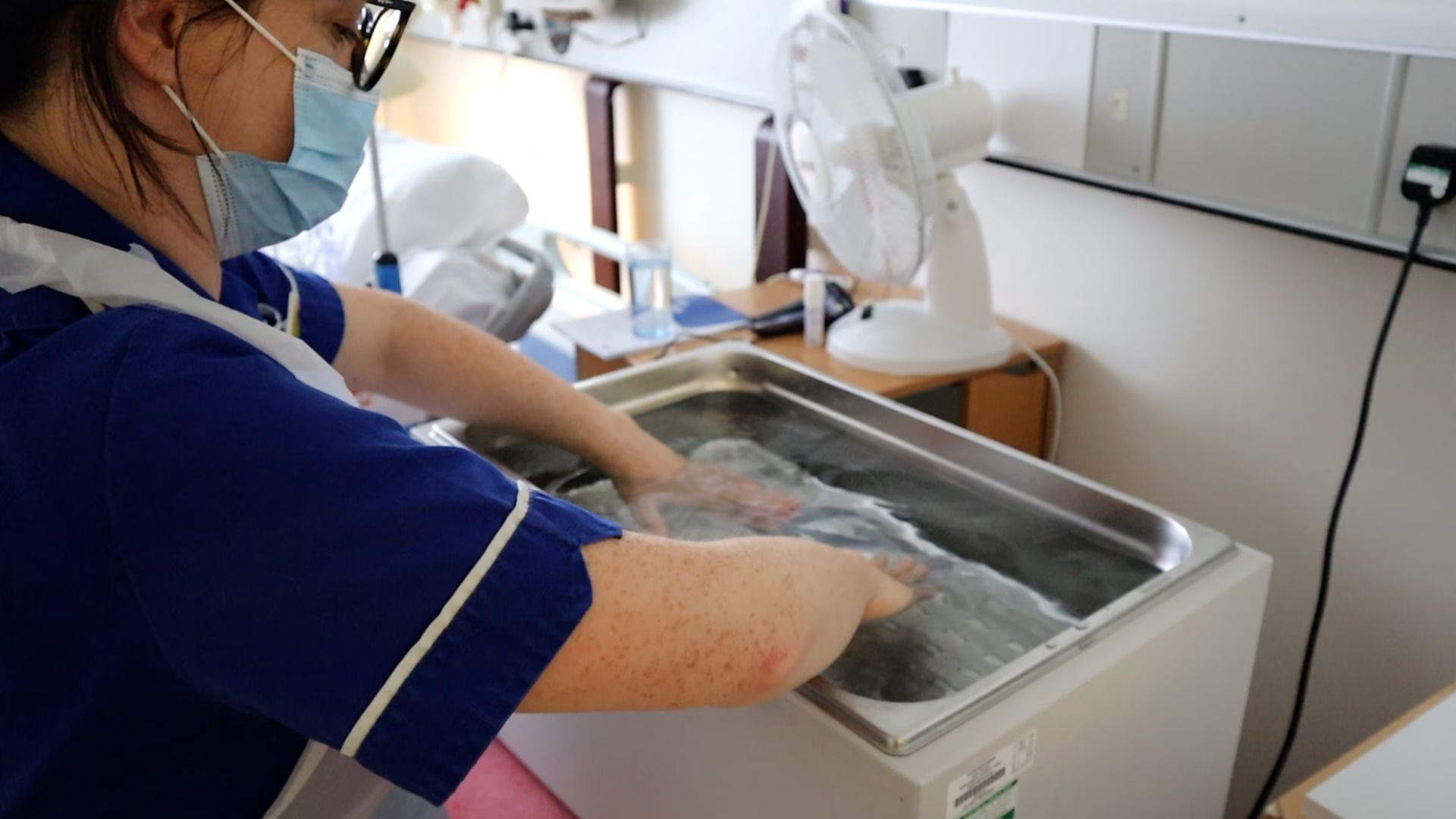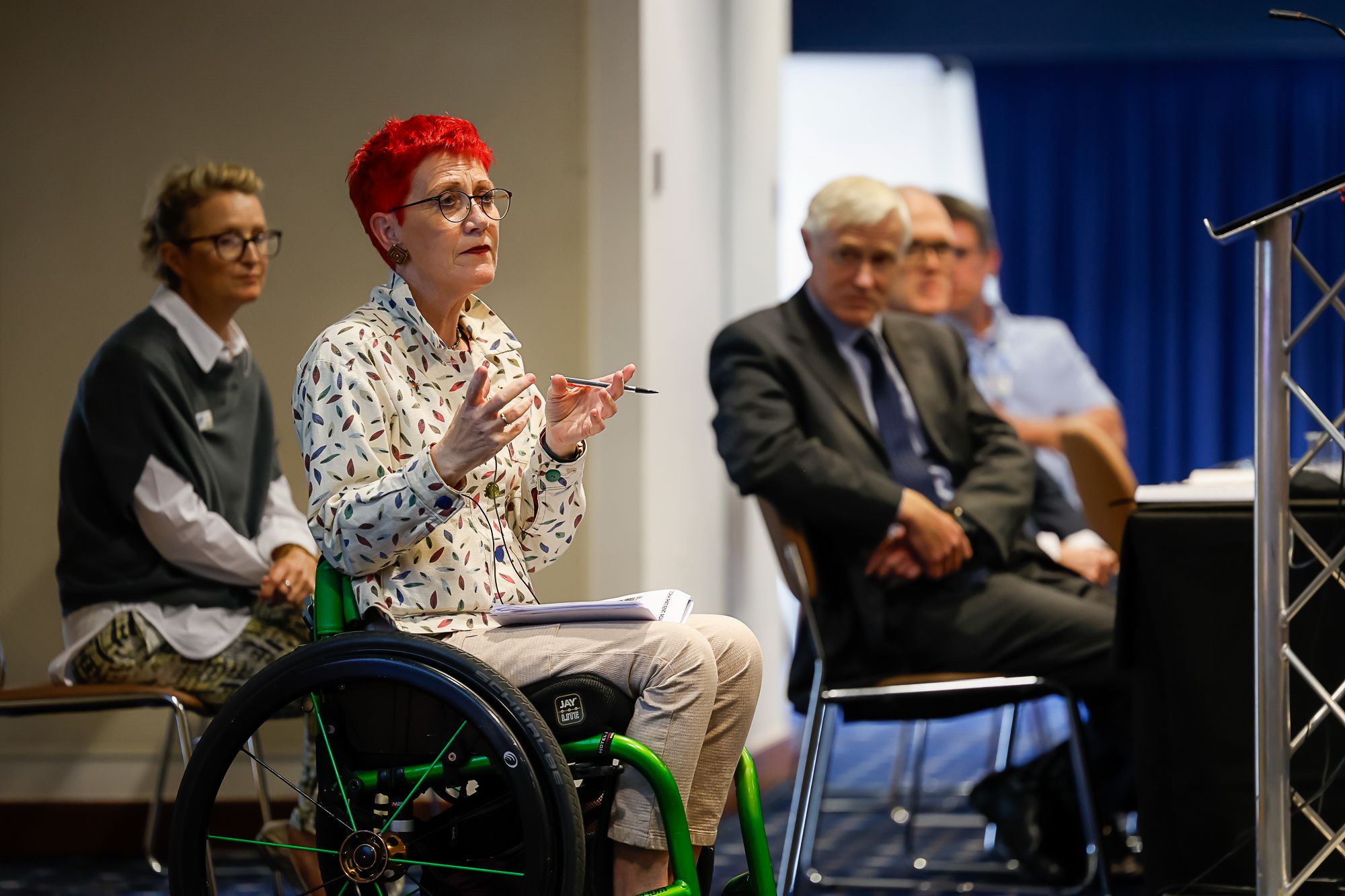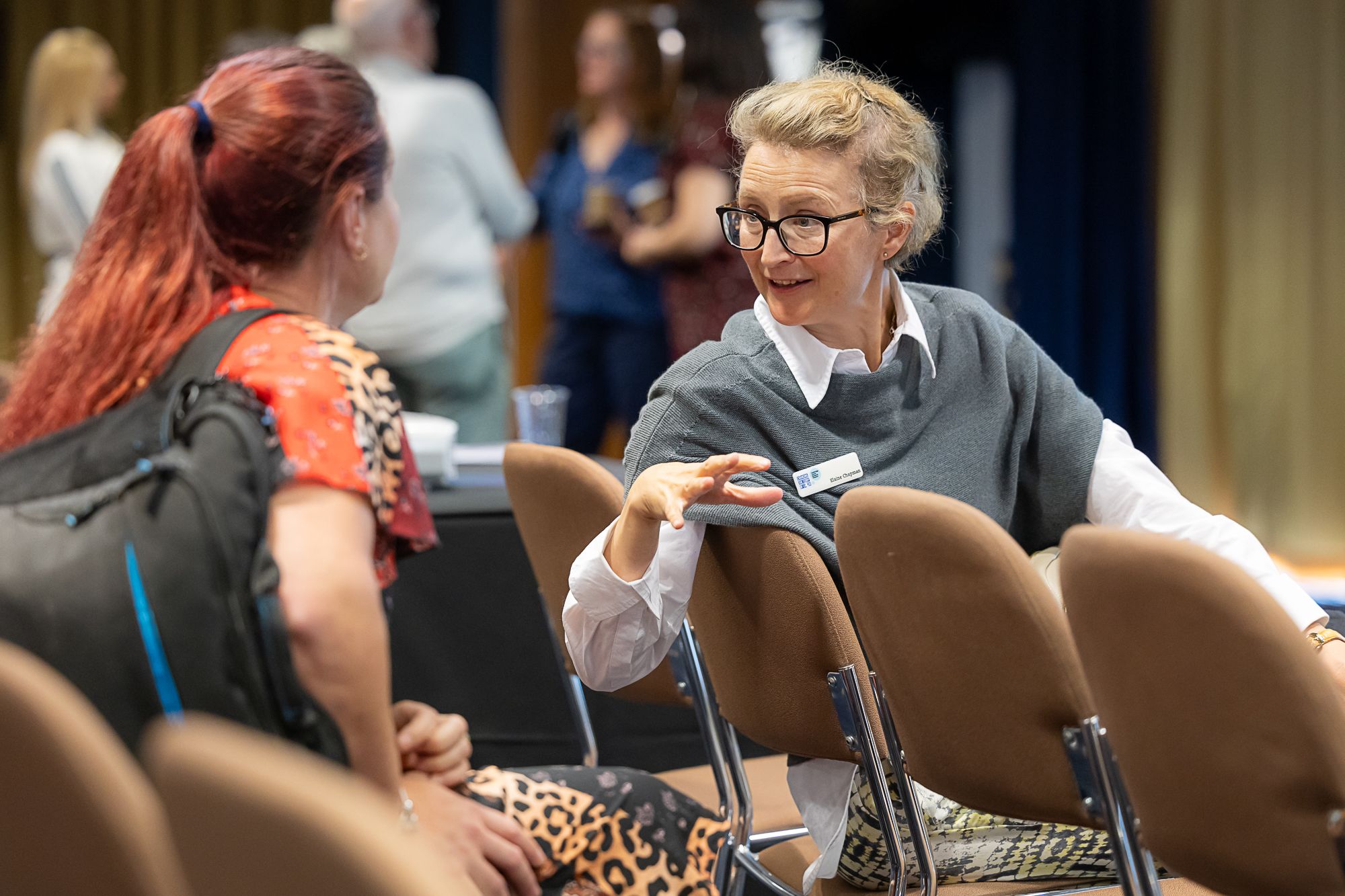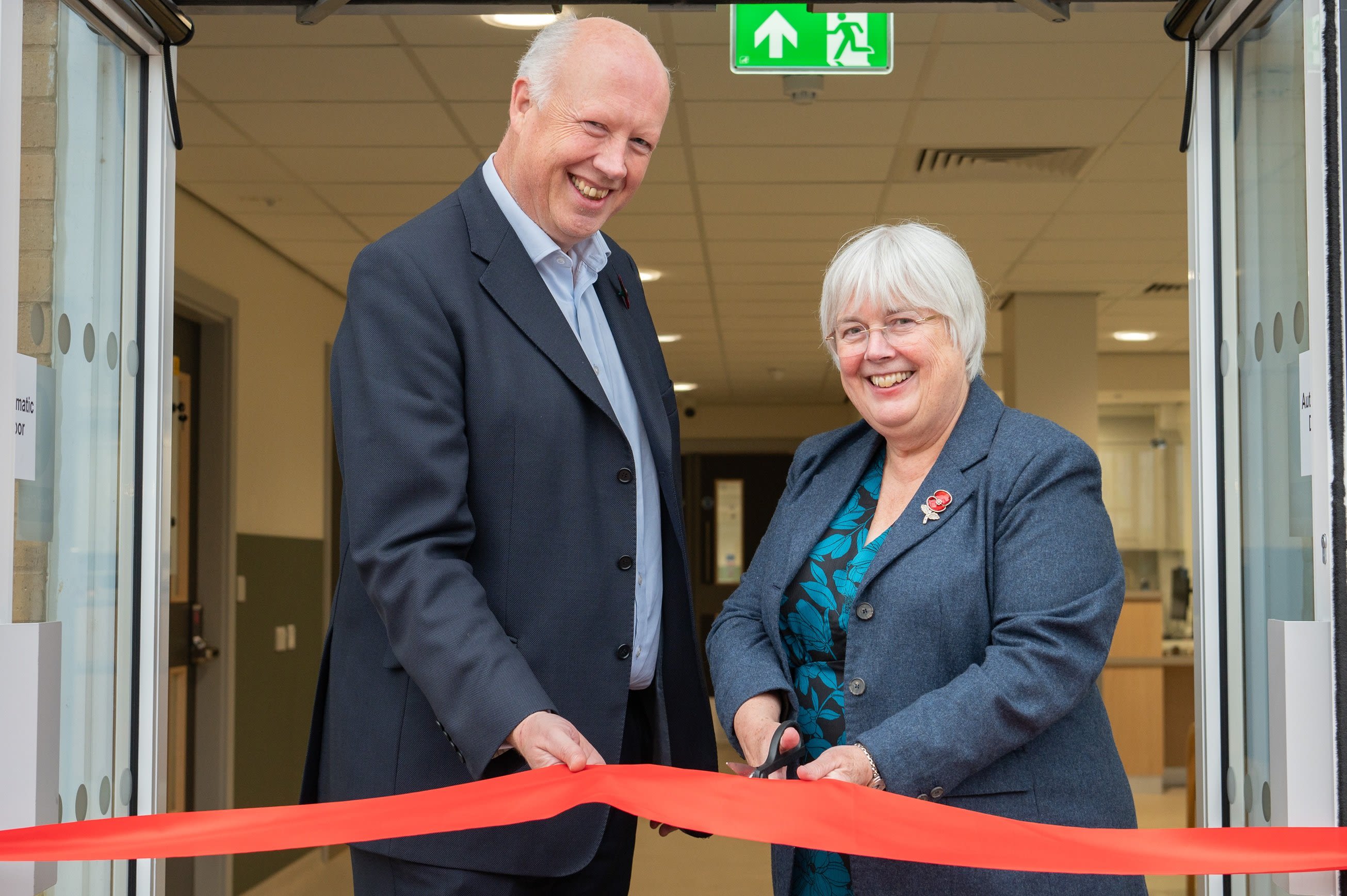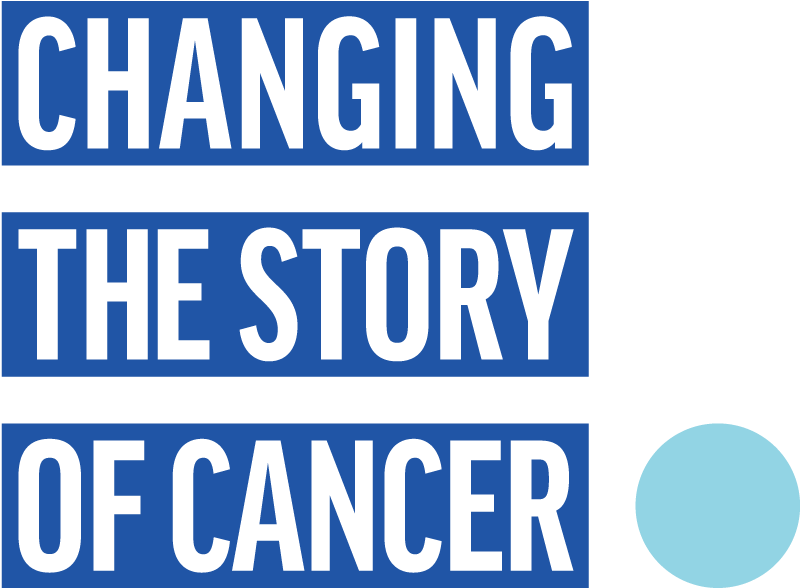CAMBRIDGE CANCER RESEARCH HOSPITAL NEWSLETTER
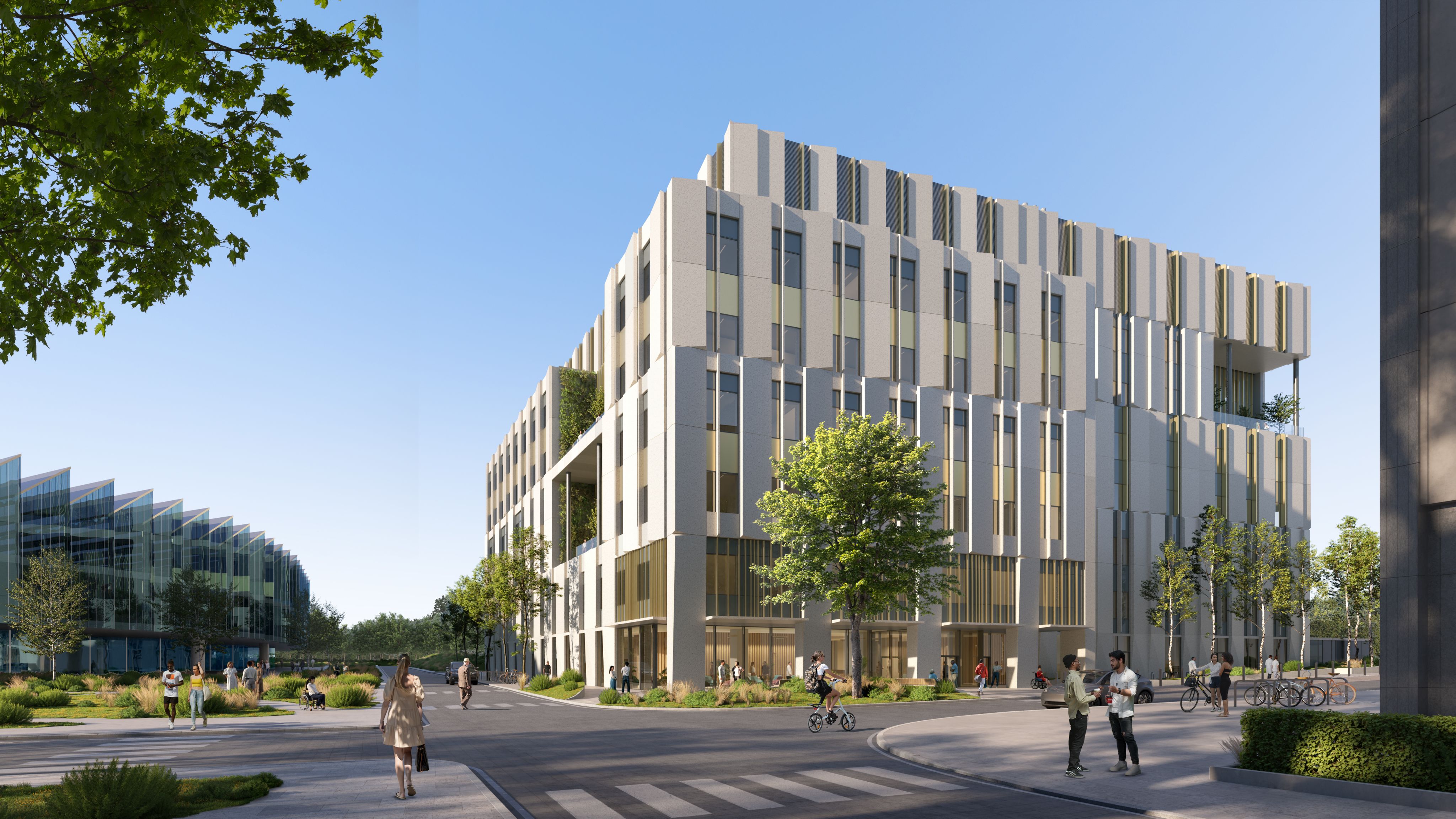
Welcome to our Cambridge Cancer Research Hospital newsletter
An update from our Research Lead Professor Richard Gilbertson, Head of the University of Cambridge’s Department of Oncology and Director of the CRUK Cambridge Centre.
An update from our Research Lead Professor Richard Gilbertson, Head of the University of Cambridge’s Department of Oncology and Director of the CRUK Cambridge Centre.
I begin with the significant news for the wider cancer research community, that Cancer Research UK has granted £173million to its Cambridge Institute, the biggest single grant ever awarded by the charity outside of London. This recognises Cambridge as one of the world’s leading areas for scientific research; with a biomedical campus that is the ideal place to build a visionary cancer research hospital.
CRUK’s investment over the next seven years will help us unlock new insights into how cancers develop, grow and spread. This will enable us to get closer to a time when we will discover and diagnose cancer years before a patient even knows they have it, and when we can prevent it becoming a problem.
Finding cancer earlier and treating it more effectively is the focus of the proposed Cambridge Cancer Research Hospital. The hospital will be funded by the Government and philanthropy, which is being led by the University of Cambridge and Addenbrooke's Charitable Trust, with a joint total of £100million to be raised.
What's really exciting about the new hospital is research will be combined with NHS clinical excellence; a shared home to accelerate breakthroughs into cutting-edge patient care. By bringing together these two disciplines in the same building we will improve patient experience, offering personalised, precision treatment. We will use machine learning and AI to enable clinicians to decide the best treatment for each patient’s cancer and increase the use of genomics to detect a patient's early response to treatment.
Anything invented in the hospital will be done in partnership with our clinical teams and will go directly into NHS care, to be rolled-out across the UK. The innovations we deliver will change the way we detect and treat cancer far beyond our hospital, bringing hope for millions of people.
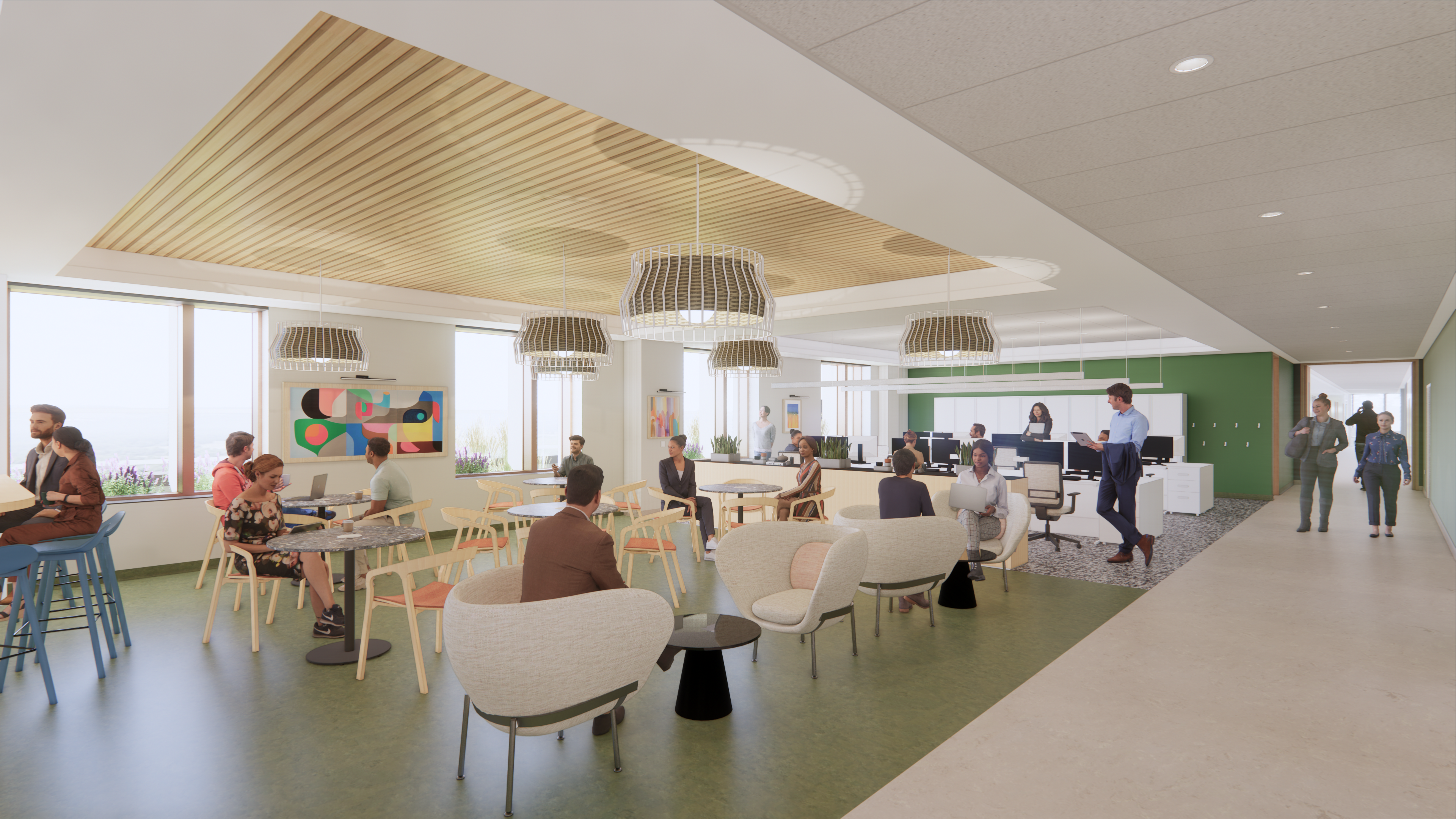
Progressing the build
Over the summer initial surveys were completed on our future site. Our next step in this process is to begin pre-construction works in the coming months, including the installation of hoardings around the site, ground clearance and an archaeological dig. We already have full planning permission approval to build our brand new hospital on Europe’s leading life-sciences cluster, the Cambridge Biomedical Campus.
Our project’s transformation team and our patient representatives have also been working closely with our construction partner Laing O’Rourke on the next stage of design, which includes planning the wayfinding around the hospital in detail, including signs needed in the building.
Here is a plan of what will be on each floor:
Scope image inside Cambridge Cancer Research Hospital
Scope image inside Cambridge Cancer Research Hospital
Cambridge Cancer Research Hospital is included in the Government’s national review, which aims to put the New Hospital Programme on a deliverable timetable. This was expected as we do not yet have full business case approval. In the meantime, we are making significant progress on the project and work continues as planned on the final design of the hospital. We plan to submit our full business case next year and we remain on track to build our specialist cancer hospital by 2029.
David's story
David Bateson, a father-of-three from Bedfordshire who was diagnosed with stage 4 skin cancer which spread to his major organs, is now living with 'no evidence of cancer' in his body, after pioneering treatment at Addenbrooke's Hospital.
“The chances are I wouldn’t be here today, if it wasn’t for people researching and developing new drugs to fight cancer. I think the new cancer hospital planned for Cambridge is going to take that to another level.”
Watch David's story
David was first diagnosed with cancer in December 2019 at 44 years old. Despite undergoing treatment (surgery, radiotherapy and a course of preventative immunotherapy), David's cancer returned twice; the first time in 2020 and again in 2021, when he was told his cancer had spread to his liver, lungs and spine.
David’s consultant, Dr Pippa Corrie, an oncologist at Addenbrooke's then prescribed David a new course of 'combination' immunotherapy treatment, that was combining two drugs to help kick-start his immune system and fight his cancer cells.
David said the hardest thing was worrying about what would happen to his family - his wife, Lisa, a community nurse, and their children; George, 22, Jack, 19, and Grace, 17.
“Having kids is the best feeling in the world. When they are born, the feeling you have is unbelievable. I didn’t want to not be there for them, I kept thinking about all the things I would miss. Things like walking Grace down the aisle.”
After two years of the pioneering treatment, David was given the incredible news in January this year there is no trace of cancer in his body.
"I just feel incredibly lucky. I appreciate life so much, I have a second go at this, and it’s just amazing," said David.
This turnaround inspired David to raise money for Addenbrooke’s Charitable Trust (ACT) and volunteer his time to support the plans for Cambridge Cancer Research Hospital. He set himself the goal of raising £500 during his immunotherapy treatment, but David has since smashed this goal, going on to raise a staggering £50,000 going towards Cambridge Cancer Research Hospital.
The total was reached with a charity football match between Ampthill Town Football Club and Luton Town Football Club under 21s (which David’s son Jack plays for). Former England goalkeeper David James made a special appearance on the day.
David with former England goalkeeper David James and members of the ACT team at a charity football game in Luton
David with former England goalkeeper David James and members of the ACT team at a charity football game in Luton
David is now a member of our Patient Advisory Group (PAG), a group of current and former patients using their lived experience to help design and shape Cambridge Cancer Research Hospital.
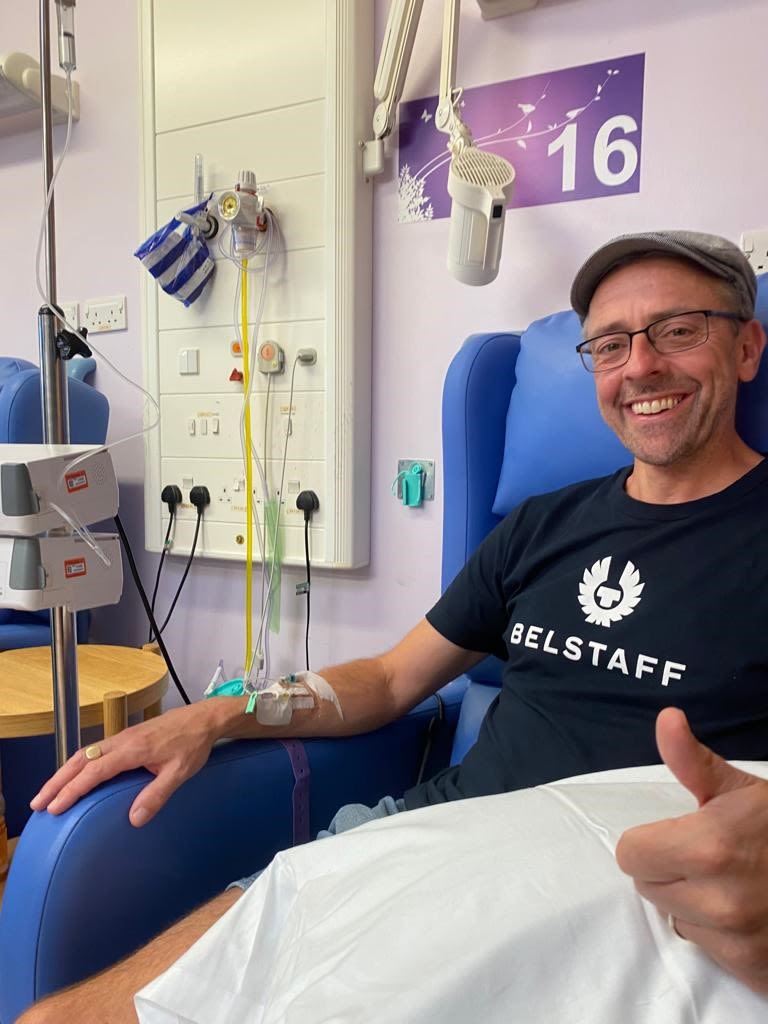
Research and CAR-T
A new state-of-the-art laboratory is set to open on the Cambridge Biomedical Campus that will deliver ‘home-grown’ CAR-T cells to help improve treatment for blood cancers.
It’s expected to be one of only a handful of sites across the UK able to manufacture the cutting-edge cells for use in clinical trials, and to develop new CAR-T cell therapies against different cancers and auto-immune diseases.
The lab, being built by the University of Cambridge and run by Cambridge University Hospitals NHS Foundation Trust (CUH), is a short walk from Addenbrooke's Hospital.
CAR-T, or chimeric antigen receptor T-cell therapy, is offered to adult patients with aggressive B-cell lymphomas and acute lymphoblastic leukaemia (ALL), who have either relapsed, or not responded well to chemotherapy or a stem cell transplant.
Watch: New lab to open to make cutting-edge CAR-T cells in Cambridge
Addenbrooke’s became the first hospital in the East of England to offer the revolutionary cancer treatment and the hospital has now treated over a hundred adult CAR-T patients from the region. The pioneering immunotherapy works by re-engineering or “supercharging” a patient’s own immune system, training their own immune cells known as T-cells, to fight and destroy the cancer.
The new clean-rooms, set to open in the next 12-18 months, will expand the facilities of the current Cambridge Cellular Therapy Laboratory at Addenbrooke’s, to help deliver more treatments to more patients, in readiness for the new Cambridge Cancer Research Hospital.
Brand new clean-rooms/ Cambridge Cellular Therapy Laboratory
Brand new clean-rooms/ Cambridge Cellular Therapy Laboratory
CAR-T cells being thawed in water
CAR-T cells being thawed in water
East of England Cancer Alliance Summit
The Cambridge Cancer Research Hospital project team took part in the East of England Cancer Alliance Summit in Newmarket in September, which was attended by 300 delegates, including NHS colleagues, charity partners and patients.
Project Director John Spicer and Lead Advisory Nurse Elaine Chapman presented our approach to co-production with our Patient Advisory Group co-chairs Fiona Carey and Neil Stutchbury.
We held a workshop on the benefits the new hospital will deliver and support, as well as hosting a stand with a model of the building.
In the workshop, we presented the benefits to those using the building, including improving patient and staff experience, infection control and better facilities; benefits to the wider system, including innovation, access to clinical trials and translational research and increased capacity for specialist treatments. The other benefits we hope to support include education and training, regional recruitment and retention, and access to specialist genomics advice.
We are now looking at the outputs from the table discussions following the benefits presentation and will be taking these forward for the project.
CCRH PAG Co-Chair Fiona Carey presenting
CCRH PAG Co-Chair Fiona Carey presenting
CCRH Lead Advisory Nurse Elaine Chapman
CCRH Lead Advisory Nurse Elaine Chapman
BBC Look East Cancer Special
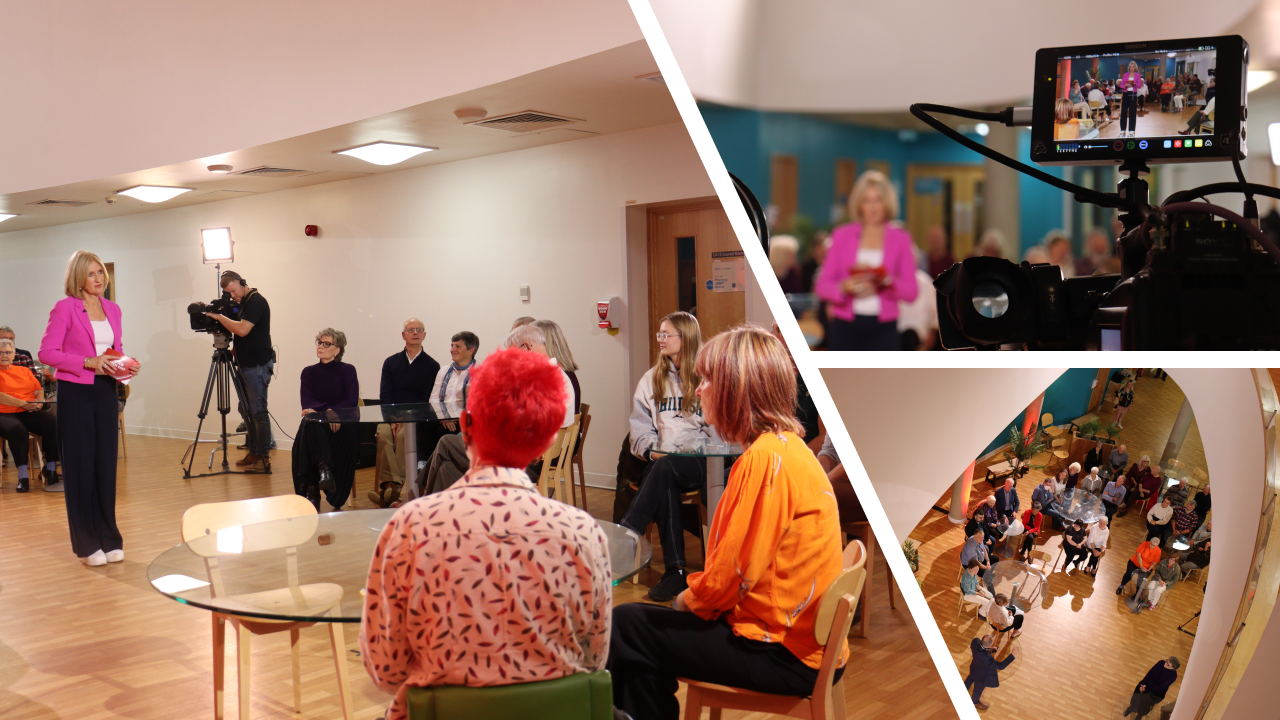

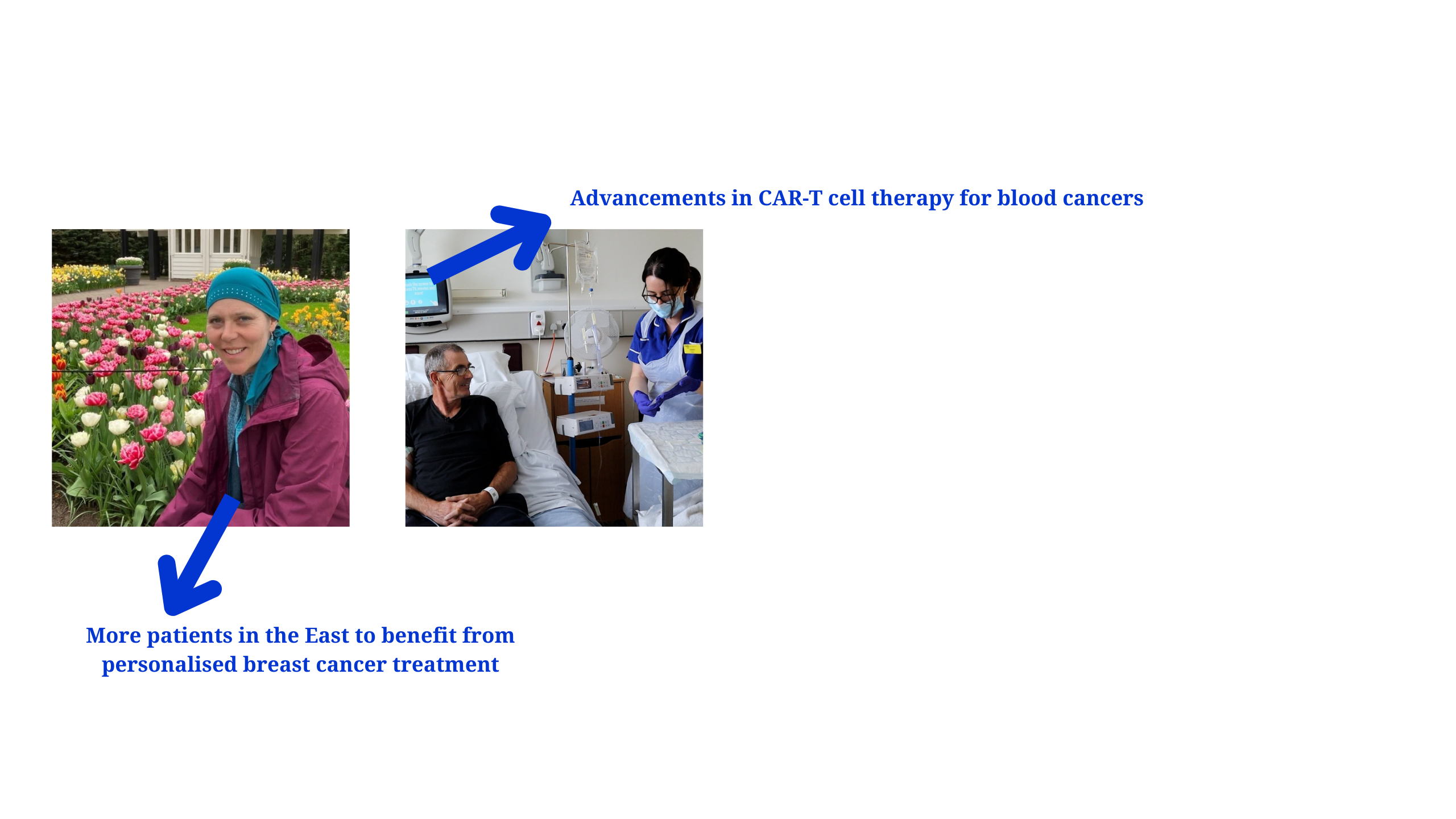
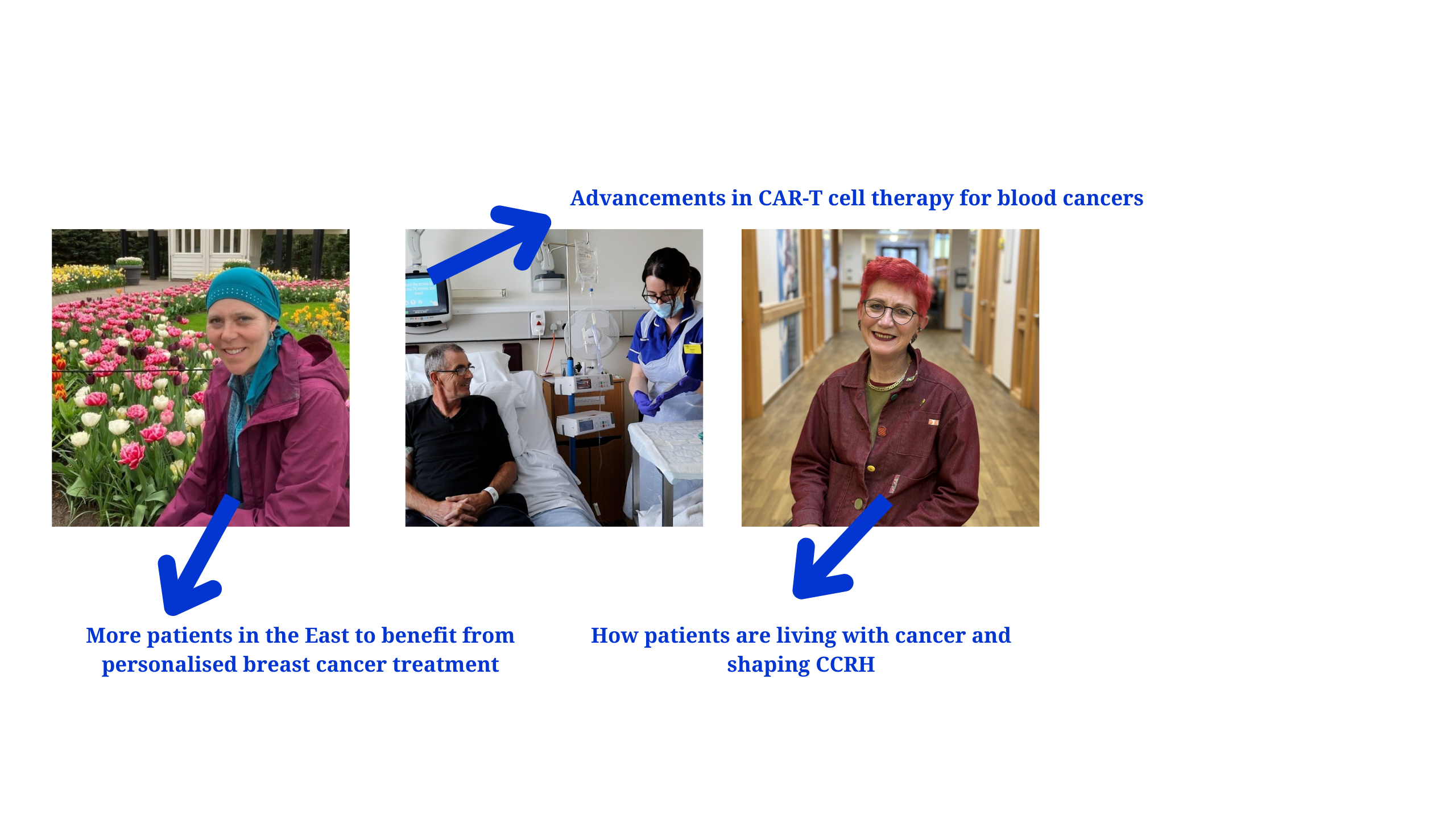
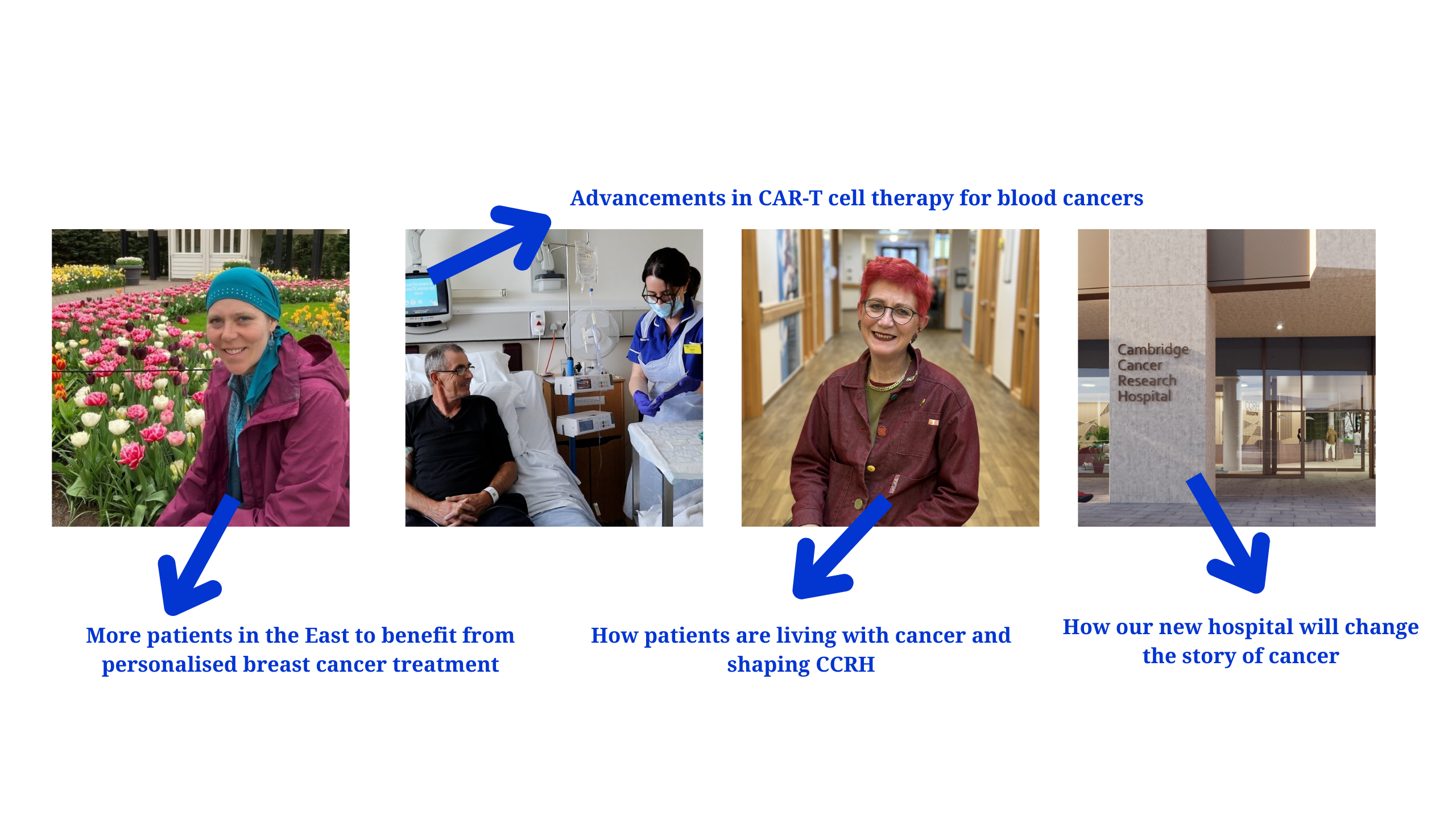
BBC Look East broadcast a special programme live from Addenbrooke's on Wednesday 16 October.
The programme offered a look at the incredible teams in Cambridge working to deliver breakthroughs in the way we diagnose and treat cancer, and looked ahead to the build of Cambridge Cancer Research Hospital (CCRH).
At the heart of the programme were patients and their stories – with an invited audience of people who have either had cancer, are being treated for cancer or living with the disease.
The half-hour programme featured a number of innovations and ground-breaking research developed at Cambridge University Hospitals (CUH), which is benefiting patients and helping save lives.
It looked at our Personalised Breast Cancer Programme. The research programme, which decodes the genetic sequence of a patient’s cancer, was pioneered at Addenbrooke’s and is now expanding to Norfolk and Norwich University Hospital. It will be the fourth site in the East and the fifth site to open nationally, after being rolled out to Ipswich, Colchester and Oxford.
It also highlighted our advancements in CAR-T cell therapy, a revolutionary type of immunotherapy treatment which supercharges a patient’s own immune system, training a patient's T-cells to fight and destroy their cancer cells.
Fiona Carey, co-chair of CCRH's Patient Advisory Group (PAG), told the BBC about what it's been like to live with kidney cancer for over 20 years, and how patients are co-designing the new Cambridge Cancer Research Hospital (CCRH).
The programme also focused on Cambridge Cancer Research Hospital (CCRH), the planned specialist research hospital for the East of England, that is bringing world-leading research and clinical excellence together, to change the lives of cancer patients across the UK and beyond.
News and events
Latest cancer news from CUH, the University of Cambridge and the CRUK Cambridge Centre:
Community Diagnostic Centre brings state-of-the-art facilities closer to home
Situated at the Princess of Wales Hospital in Ely, the brand new state-of-the-art equipment and facilities will enable thousands of patients to quickly and efficiently access vital diagnostic services such as MRI and CT scans.
Dr Hugo Ford, Clinical Lead for CCRH and Director of Cancer Services at CUH, and Charlotte Cane, MP for Ely and East Cambridgeshire.
Dr Hugo Ford, Clinical Lead for CCRH and Director of Cancer Services at CUH, and Charlotte Cane, MP for Ely and East Cambridgeshire.
World-first trial launches to revolutionise the treatment of brain cancer
A pioneering research study that's open at Addenbrooke's will trial multiple new treatments for people in the UK living with glioblastoma, an aggressive form of brain cancer.
Personalised Breast Cancer Programme to benefit more patients in the East
DNA 'barcoding' programme to transform breast cancer treatment opens in Norfolk and Norwich University Hospitals NHS Foundation Trust.
Researchers make breakthrough in fight against testicular cancer
Using tumour samples collected by the NHS for the 100,000 Genomes Project researchers have, for the first time, been able to use whole genome sequencing to study the causes of testicular germ cell tumours (TGCTs) in adults.
Unprecedented funding boost for CRUK Cambridge Institute
Cancer Research UK is investing £173 million in its Cambridge Institute – the largest single grant ever awarded by the charity outside of London.
The Cambridge Cancer Research Hospital team and the Cancer Research UK Cambridge Centre will be at a number of public events in the coming months. If you're interested in finding out more or registering to attend, please click on the links below:
21 November 2024 - World Pancreatic Cancer Day
The CRUK Cambridge Centre team will be hosting an online webinar from 1:15-2pm for a discussion of cancer-associated cachexia (muscle wasting/weight loss), from research, clinics to day-to-day management.
22 March 2025 - Save the date - Cambridge Festival
Join us in the Cambridge Academy for Science and Technology (CAST Building) on the Biomedical Campus to get hands-on with our ground-breaking science, and look ahead to our latest plans for Cambridge Cancer Research Hospital.
Find out more and join us
Patients and their families are involved in the CCRH programme in two groups; the Patient Network and the Patient Advisory Group (PAG). For more information on joining these groups, please visit the CCRH website.
Follow us on Twitter and Facebook for news about the programme and visit our website for more information.
To unsubscribe from this newsletter, email hello@cambridgecancer.org.uk

